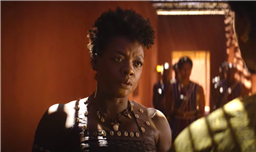
It’s been proven time and time again that Academy Award attention has little to do with box office glory. Just look at recent winners like “Moonlight,” “The Hurt Locker,” or “CODA,” the first streaming movie to land the Oscar’s top prize, all of which were more beloved than seen, at least by the general public.
But during a year in which several commercial movies, including “Top Gun: Maverick” ($1.44 billion globally and counting), “Elvis” ($284 million globally) “Black Panther: Wakanda Forever” (scheduled for Nov. 11) and “Avatar: The Way of Water” (scheduled for Dec. 16), look to find themselves in the awards race, film industry analysts believe the box office may play a part in keeping movies from major studios in the conversation.
Another Oscar hopeful that has been well received by audiences is Sony’s historical action-epic “The Woman King,” which opened over the weekend to a strong $19 million. The studio is leaning into its commercial prospects before emphasizing its award season bona fides, marketing the movie more like a female “Braveheart” than an arty war drama. But “The Woman King,” starring Viola Davis and directed by Gina Prince-Bythewood, is the kind of contender that can only benefit from outsized ticket sales — especially if the well-reviewed movie manages to keep bringing in moviegoers in the coming weeks.
“This is a great scenario for ‘The Woman King’ because it raises the film’s profile,” Paul Dergarabedian, a senior media analyst with Comscore, says of its better-than-expected debut. “It’s a heavier lift to get that kind of attention for a movie that comes and goes in opening weekend and is never talked about after that. The longevity is better for awards season.”
For indie movies with smaller budgets, there’s less of an expectation around box office results since those films often aren’t marketed to the general public. But when all-audience tentpoles succeed in theaters, it stands to elevate the movie’s stature in a wide open field. Alternatively, lackluster ticket sales can dominate the narrative around a film in a way that overshadows its artistic achievements, as was the case with Steven Spielberg’s “West Side Story” remake, “In the Heights,” “Blade Runner 2049” and another Davis-led film, “Widows.”
It’s the first time in two years that box office has even been mentioned in the same conversation as the Oscars. During the pandemic, older audiences — the ones who reliably turn out for the arthouse fare that dominates during awards season — were most reluctant to go to theaters. At the same time, capacity restrictions in theaters and rampant COVID-19 variants meant that contenders like 2020’s “Nomadland” and 2021’s “Licorice Pizza” had lackluster ticket sales. Unlike in pre-pandemic times, there wasn’t much of an option for commercial hits to enter the Oscar race at that time.
“It was a chaotic time for the movie industry, and it trickles down to awards season,” says Jeff Bock, a box office analyst with Exhibitor Relations. “You had films that nobody knew where to see or when they were available.”
But with coronavirus cases retreating and adult crowds returning to movies like “The Woman King” and “Elvis,” it could have a spillover effect to specialty films. Director Martin McDonagh’s dark comedy “Banshees of Inisherin,” the Todd Fields classical-music drama “Tár” and Sarah Polley’s “Women Talking” — to name a few in contention after enthusiastic festival premieres — could also get a box office boost, albeit one that may be more modest, from awards attention.
It could be mutually beneficial for the Oscars to nominate movies that people have actually watched. It’s up for debate whether a lack of populist films actually impacts the Academy Awards’ ratings, but analysts believe there’s no downside to highlight movies that were widely seen.
“It would do wonders for the viewing of the Oscars [telecast],” Bock says. “It certainly needs a boost, and the box office is always going to help.”
The producers behind the Academy Awards telecast don’t need the entire lineup to be filled with commercial triumphs — though, a few wouldn’t hurt the show’s viewership. After all, the best picture race expanded to 10 nominees in the hopes that quirky Irish dramedies and nearly three-hour explorations of cancel culture could share the love with crowd-pleasers about heroic fighter pilots and awe-inspiring female warriors. There’s enough room at the box office — and on the Oscar’s stage.
Read More About:
Source: Read Full Article